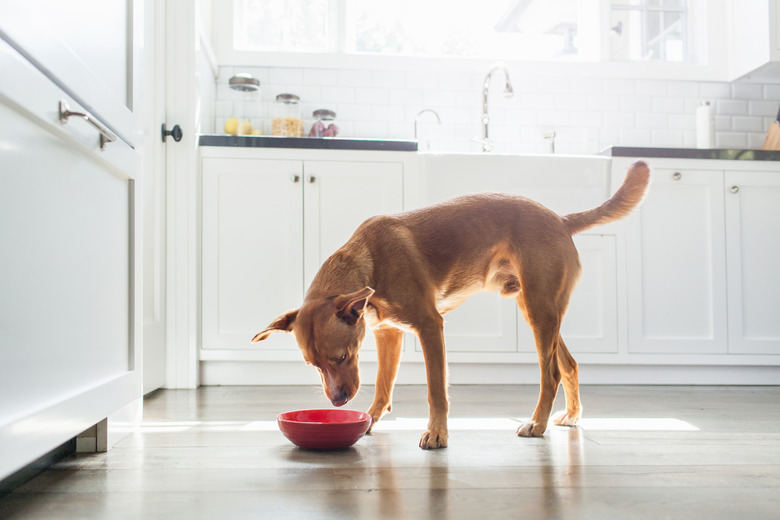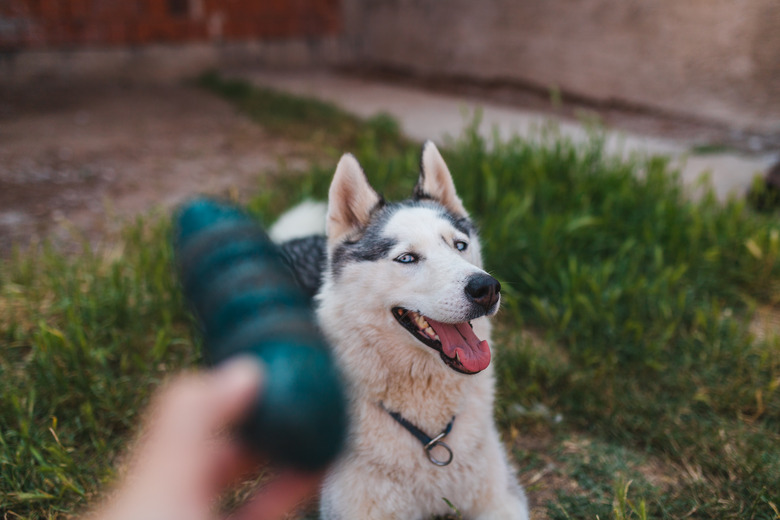Dangers Of My Dog Eating Insulation
Insulation keeps your home cool in the summer and warm in the winter, but it isn't meant for consumption by your pooch. If your dog snacks on your home's insulation, they could develop a dangerous intestinal blockage or experience other health problems. Prevent issues by keeping your canine companion away from this potentially harmful material that surrounds your home.
Why insulation is toxic to dogs
Why insulation is toxic to dogs
You'll find insulation in many parts of your home, such as your walls, roof, ceilings, and attic. Insulating materials include fiberglass, polystyrene, cotton, rock wool, polyurethane foam, polyisocyanurate foam, vermiculite, perlite, and cellulose. Most insulation is safe when properly contained. However, older homes may contain toxic insulation made with asbestos, a known carcinogen, or insulation that contains lead.
Worse yet, many insulating materials are treated with toxic chemicals to make them last longer and discourage pests, like rodents, from eating them. These toxins can make your pup sick if ingested. While your pooch shouldn't be able to access the insulation in your home, they could encounter it during a home renovation or if they're particularly destructive or curious.
Dangers of dogs eating insulation
Dangers of dogs eating insulation
The main danger if your dog ate insulation is the possibility of it causing an intestinal blockage for your pooch. Once ingested, these materials can become stuck in your pup's digestive tract, creating a medical emergency that requires a trip to the veterinarian.
Materials like fiberglass can perforate the intestines when ingested, as it is made up of tiny glass fibers. These fibers are sharp when broken and can damage your pup's intestines and stomach. If you suspect your dog has eaten any type of insulation or if you find pieces of it in their feces, get them to the veterinarian right away.
Signs your dog ate insulation
Signs your dog ate insulation
If your dog has the run of your property, it might not be readily noticeable that they ate some insulation. However, they likely won't be acting like themself. Your pooch might show signs of intestinal obstruction. Symptoms that a dog ate drywall can include vomiting or retching, lethargy, a distended abdomen, and visible discomfort.
What to do if your dog ate drywall or insulation
What to do if your dog ate drywall or insulation
If you think your dog ate glass or drywall, your veterinarian will X-ray your dog to determine if any insulating material is stuck along their digestive tract. If possible, bring the veterinarian a sample of the insulating material your dog has ingested. This will help determine its level of toxicity and assist them in looking for any internal damage.
Some internal blockages require surgical removal. Your veterinarian may use an endoscope, which contains a camera, to look in your pup's tummy and intestines to check out any internal damage or intestinal blockage. They may even be able to remove the blockage using the endoscope. Once it's removed, your veterinarian will treat any poisoning symptoms based on the insulating material ingested.
Prevent your dog from eating insulation
Prevent your dog from eating insulation
Most dogs won't eat insulation, but some do because they are curious or hungry or because they suffer from pica. Pica is a condition in which a dog likes to eat unhealthy, non-food things due to a medical condition or a behavioral issue. To help prevent your dog from eating insulation:
- Prevent your pooch from coming in contact with insulation in any form.
- Restrict your pet from accessing any areas of home renovation.
- Patch any holes in your home to prevent access to insulation.
- Keep all building materials in an inaccessible area, such as a garage.
- Don't use household insulation in dog houses.
- If your dog eats glass or generally chews on things when you're not home, consider crating them while you're gone.


